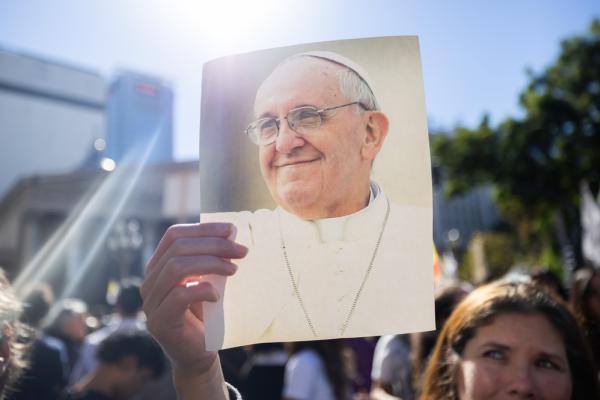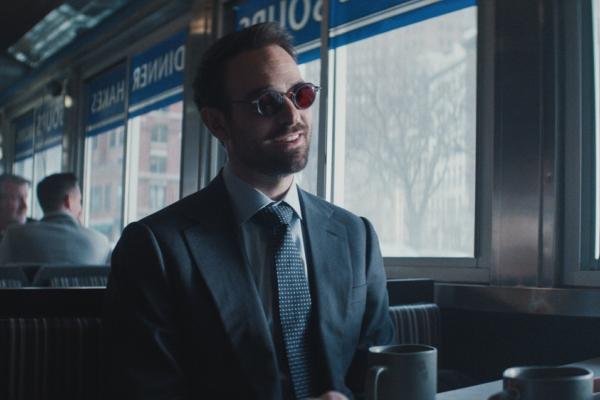For too long, innocent, powerless victims have suffered under the perils of police brutality. The latest episode, a bodycam video allegedly showing a white Los Angeles police officer planting drugs on an innocent black civilian, is another in a long list of atrocities detailing the unrepentant abuse of power and criminality of some members of law enforcement.
Among the victims of police brutality was none other than Christ himself. While this notion conjures up mixed emotions — including unbearable sadness — we should also take heart. Jesus experienced and overcame police brutality — so can innocent, powerless black women and men. To do so, churches with those most affected by police violence in attendance must cultivate a liberating praxis of anti-oppression retaliation, which includes teaching the characteristics of Christ’s response to law enforcement victimization. The writings of the great theologian James Cone and others after him allowed us to rip the misguided veil of blasphemy and usher black people into a newfound solidarity with Jesus of Nazareth.
From their portrayal in Matthew’s Gospel, the centurions who surround Jesus are unconscionably immoral. They stripped him naked, mocked him, and beat him maliciously while in their custody.
The crooked centurions stripped the innocent Jesus. In our time, this would be classified as sexual abuse. Acts of humiliation and dehumanization, like what happened to Jesus, are rampant among police officers. In the past few years, there have been numerous incidents of innocent black men, women, and children being stripped down and cavity-searched in full view of onlookers. Simply mentioning the names of victims such as Abner Louima, or perpetrators like Officer Daniel Holtzclaw, speak to the country’s familiarity with criminal sexual brutality by law enforcement.
The similar vein between most modern cases of police officer misconduct and the actions of the Roman soldiers in the passion narrative is the non-existence of accountability. These law enforcement representatives are allowed to commit heinous atrocities without fear of disciplinary action. Equally as worse, the lack of innocent police officers willing to speak out against these evils is shockingly prevalent. Whether or not they want to believe or accept it, silence is complicity. The unspoken but widely-known “blue wall of silence” that prevents police officers from holding each other accountable is unacceptable — just as if a Roman soldier who felt Jesus was innocent said nothing.
Now, I know all police officers are not bad. And yes, I wholeheartedly admit that there are some police officers who do great things every day. So, now the inevitable question remains, what do black and urban churches do about police brutality? We protect God’s people. All of God’s people. We follow the example of Rev. Jamal Bryant in Baltimore and teach our people to deal with police the way that Christ did. Jesus was non-confrontational and non-retaliatory with law enforcement, but through his character and divine power convicted the heart of a corrupt centurion to repentance.
The urban, contemporary manifestation of divine power must be actualized not only through churches educating our people or protesting the injustice of police brutality but through a liberating praxis of anti-oppression retaliation, a byproduct of black churches' historical identity as a refuge. Historically, urban and black churches were the center of the community, fulfilling spiritual, physical, financial, and communal needs. There is great debate as to whether that identity still exists, but whether it exists or not, church-led social uplift must be magnified. Black and urban Churches must resist specifically through cultivating a concentrated effort on using its resources (buildings, finances, membership, etc.) in building the next generation of leaders. Churches can offer low-cost afterschool care with tutoring and basic art programs to assist working parents in keeping their children off the street. Churches with successful career-oriented members can offer workshops on resume writing and interview preparation to help members of the community secure stable employment. If churches are actively engaged with the uplift of the community, it might decrease the likelihood of an antagonistic police presence.
The reality is many black inhabitants cannot infiltrate police departments or law offices because of the school-to-prison pipeline. Except in rare instances, lawyers cannot be made in impoverished schools and police officers cannot have prior convictions. The U.S. urban reality prevents them from infiltrating the justice system. Black and urban churches must recognize and systematically counteract these realities in hopes of cultivating a remnant to penetrate. The divine power of Spirit-led action can reduce these trends, and hopefully lead immoral officers toward revelation and repentance.
Got something to say about what you're reading? We value your feedback!






